13,000 miles long and roughly 30 feet tall, the Great Wall of China symbolizes both the country’s military strength and its isolationism. Currently, no country has a Great Wall, but many countries are dedicated to staying isolated, often to aviod exposing their citizens to sociocultural ideas and practices disliked by their respective governments. For various reasons, the following 10 countries may be difficult for tourists to visit.
10. Canada

Surprised? Frankly, so are we. Canada’s requirements for air travel and border crossing have been more stringent since its southern neighbor, the United States, suffered a terrorist attack in 2001. Since 2007, anyone traveling into Canada by air must have a passport. People who frequently drive across the Canadian border may obtain an enhanced driver’s license that serves in lieu of a passport. Even with stricter security measures required, Canadian customs officials have a reputation for friendliness. The stereotype of the conversational Canadian customs officer is so pervasive that Canadian comedian Rob Bebenek has a stand up routine wherein he contrasts crossing the U.S. border with crossing the Canadian border.
However, one group of people may find Canada difficult to enter. Driving Under the Influence (DUI) and Driving While Intoxicated (DWI) are considered particularly serious offenses in Canada. Someone who has been convicted of more than one DUI or DWI might not be permitted to cross the border. If a conviction is at least 10 years old and carried a maximum sentence of less than 10 years, someone who has the necessary paperwork may petition for Criminal Rehabilitation. If that petition is granted, the person will be allowed to cross. Those who aren’t eligible to apply for Criminal Rehabilitation may apply for Individual Criminal Rehabilitation, a status that is determined by the Canadian government on a case by case basis. Other options for those who are ineligible for Criminal Rehabilitation include getting a pardon or discharge of your conviction from the country where one was convicted, which must be accepted by the Canadian government, or obtaining a temporary resident permit.
9. Iran
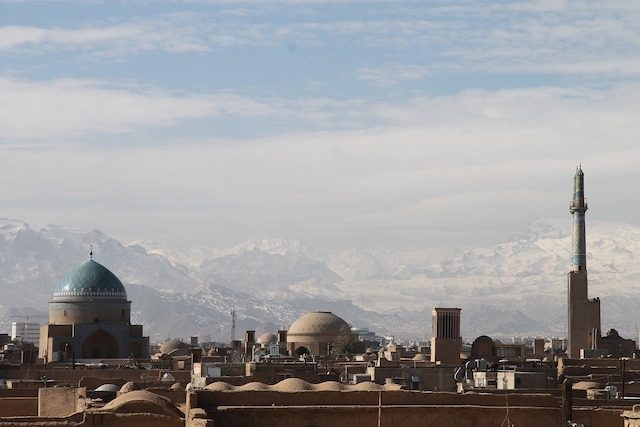
Many cultural innovations that are now prized worldwide began in Iran. Refrigeration, postal delivery, guitars, and chess originated in the area. Tourists would be welcome to learn about the country’s culture and its history, if they didn’t have such difficulty visiting. In 2018, the United States both imposed sanctions on Iran and discontinued its nuclear deal with the nation. Those political decisions had a significant commercial impact, harming the country’s tourist industry.
Deterred by the sanctions, Americans and citizens from countries allied to the United States no longer visit Iran. However, the sanctions have especially affected domestic tourism. Seventy percent of Iran’s tourism revenue comes from Iranians traveling within the country. Fewer Iranians have sufficient money for traveling, since the sanctions are weakening the Iranian economy.
8. Turkmenistan

Turkmenistan is a former Soviet bloc country that’s bordered by Kazakhstan, Uzebekistan, and Afghanistan. The Soviet bloc countries were satellite countries of the Soviet Union. Many of them were financially destabilized when the Soviet Union fell in 1991.
The revenue tourists bring is welcome in Turmenistan, but it’s a difficult country to visit. Most travelers who wish to visit must be invited by the government or fund a touring company, though tourists staying on the mainland may be granted five day visas. Social media is banned in Turkmenistan. All tourists are officially required to be accompanied by guides, who report the tourists’ movements to the government.
7. Yemen

We’ve talked about the warfare in Yemen before, and we’re mentioning it again because, sadly, Yemen is still at war. A brief history of warfare in Yemen: In 2004, the Houthis, a Shiite political and religious group, plotted to overthrow the Yemeni government. On September 21, 2014, the Houthis seized the capital city, Sana’a. Because many political and religious groups opposed the Houthis, the country began a civil war in 2015.
The civil war hasn’t ended, but it isn’t solely a war amongst Yemenis. Yemen’s civil war is a proxy war, a war instigated by major powers that don’t become directly involved. Iran provided weapons to the Houthis, while Saudi Arabia and the United States provided weapons to the Yemeni military. In 2019, the U.S. Congress voted to stop selling arms to the Yemeni government. Imagine: A Yemeni who was born in 2014 has never experienced peace, or a stable economy.
When the country is at peace, it is an enviable tourist attraction. Sana’a, the capital city, has been continuously inhabited for 2,500 years. For tourists who enjoy nature, Yemen would be an ideal vacation destination .Ninety percent of the reptiles in Yemen cannot be found anywhere else in the world. Unfortunately, tourism companies officially advise that the country is unsafe to visit due to terrorism, civil war, health risks, kidnapping, and armed conflict.
6. Angola

Angola, a large country in southwestern Africa, includes deserts and rainforests. Angola was formerly a Portuguese colony, but Portugal now depends on Angola for finacial support — Angola possesses rich oil reserves. Angola has survived colonization and civil war. Now the country’s greatest threat is economic instability, caused by inflation.
In 2011, the capital city, Luanda, was the most expensive city in the world to visit. The average price of a melon at a street market was one hundred U.S. dollars. Someone who could afford to visit Luanda would still need to pay to be invited. Tourists must receive an official invitation from the government in order to visit. Anyone who requests a letter has to pay for it. If the letter arrives without a visa despite the visa having been paid for, or the visa is later denied, none of the expenses incurred can be refunded.
5. Saudi Arabia
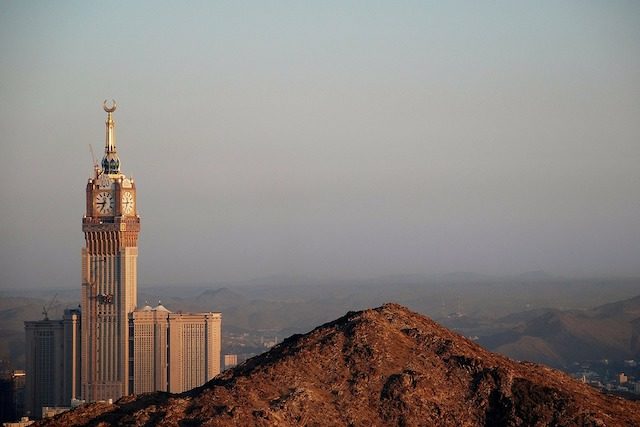
Like Yemen, we’ve talked about the dangers of visiting Saudi Arabia. Also like Yemen, the Saudi Arabian government’s oppressive practices have since worsened. The Saudi government admitted to orchestrating the November 2018 murder of a journalist for The Washington Post, Jamal Khoshoggi. Khoshoggi, who authored articles criticizing Saudi prince Mohammed bin Salman, was ambushed and strangled when he entered the Turkish consulate to obtain a marriage license. His attackers chopped up his body with a bone saw.
On 2019, 36 countries signed an open letter criticizing Saudi Arabia for its human rights abuses. Negative news coverage of Saudi Arabia has negatively affected its tourism industry. The Saudi royal family is the richest family in the world, worth over one billion dollars. The economic instability exacerbated by the decrease in tourism will affect not the royal family, but the Saudi citizens. Twenty percent of the population of Saudi Arabia lives in poverty.
4. Russia
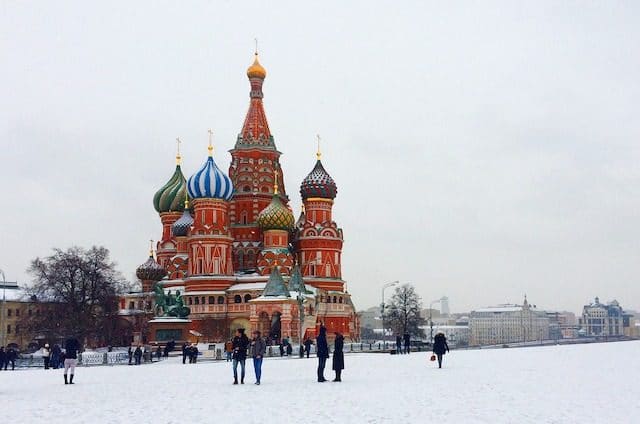
Even before U.S. special counsel investigator Robert S. Mueller confirmed that Russia interfered with the United States of America’s 2016 presidential election, sociopolitical tensions created during the Cold War were still present between the two countries. And as long as the nation remains under the thumb of its president, Vladimir Putin, that tension is likely to remain.
Russia doesn’t recognize U.S. diplomats’ authority to intervene in visa-related difficulties involving American travelers. All travelers are advised to avoid unsanitary water, unsafe medical treatments, pickpocketing, and government surveillance.
3. Kiribati
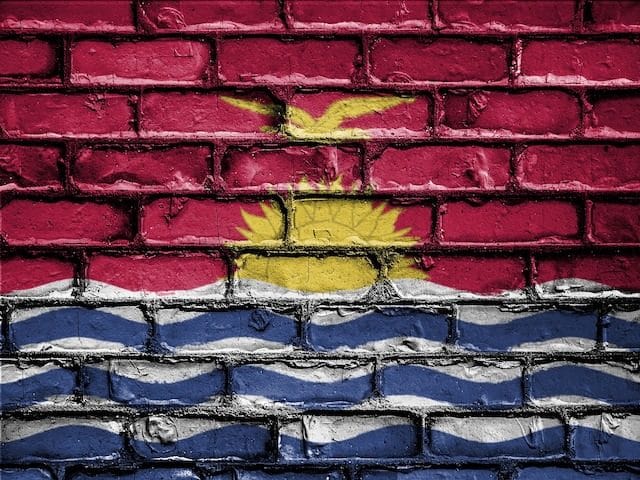
The Pacific island of Kiribati isn’t particularly dangerous to visit. It’s just incredibly difficult to reach. Any airport travel requires a long, costly flight between islands. There are few amenities to which travelers from the United States, Canada, and Western Europe are accustomed.
However, local families are willing to accommodate guests. A tourist who requires a passport — anyone living outside of the European Union — should schedule an additional trip to Wales. The only Kiribati embassy in Europe is in Llandewi Rhydderch. But hey, we hear Wales is nice this time of year, if you’re feeling particularly ready to — eventually — make your way to Kiribati.
2. Bhutan

The Buddhist kingdom of Bhutan was closed to visitors until 1974. As of 2019, obtaining a visa costs $40. A tourist must pay $250 to the government for each day of his or her stay. The daily fee includes the provision of accommodation, transportation, food, and a guide.
Travelers from India, Bangladesh, and the Maldives do not need to obtain a visa to visit Bhutan. Invited guests of the government aren’t required to pay a daily fee. The fee is intended to deter visitors, in order to protect the country’s forestry. Bhutan’s dense forests make it the only carbon negative country in the world, and federal law requires that sixty percent of the land always remain covered by trees.
1. Eritrea
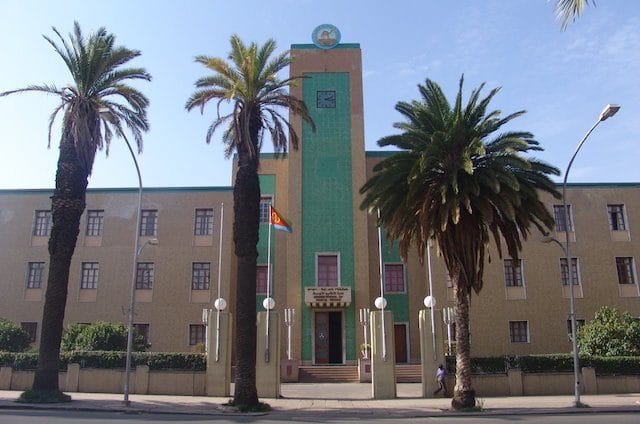
Eritrea is the most difficult country in the world to visit. Formerly a colony of Italy, the northeastern African country gained independence in 1991, after a 30 year war with Ethiopia. As of 2019, Eritrea is a dictatorship. All tourists require a visa, and a visa costs $70.
Visitors aren’t permitted to use local transportation while they are in Eritrea. The only way to travel within the country is by prearranging modes of transportation with a tourist company. Anyone traveling outside of the capital city, Asmara, must receive the government’s permission to travel to each destination he or she wants to visit.